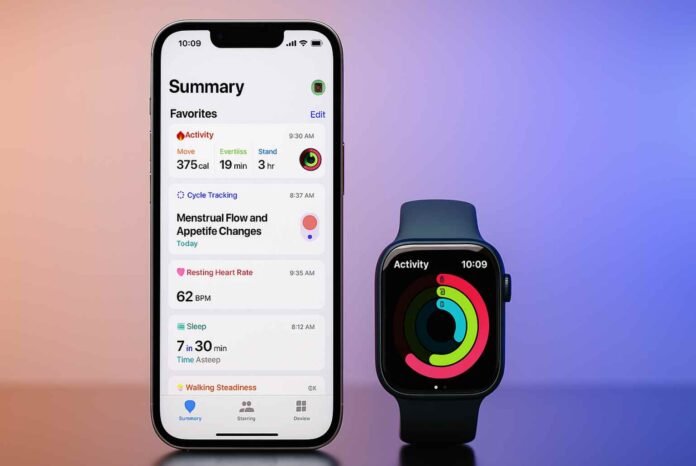- Apple is rumored to launch a paid Health+ service with AI-powered wellness tools.
- The move could mirror Garmin’s recent subscription controversy.
- Users worry Apple may start locking free updates behind a paywall.
- The success of Health+ depends on how clearly Apple defines its value.
Apple is reportedly preparing to launch a new subscription service called Health+, and it might not land well with users. The new tier, said to come with AI-powered health features, could bring Apple into the same controversy that hit Garmin earlier this year.
Apple’s Next Big Step in Health Tracking
For years, Apple has built its reputation on offering powerful health tools through its Watch and Health app. From heart rate tracking to sleep insights, these features have always been included with the device at no extra cost.
Now, reports suggest that Apple wants to introduce a paid Health+ subscription. According to industry insider Mark Gurman, the service will sit inside the existing Health app on iPhone and iPad. It will reportedly include AI-driven features such as nutrition guidance, wellness planning, and personalized medical suggestions.
Health+ would join the company’s growing list of subscription products like Fitness+, Music, and iCloud+. But while Apple’s fans are used to paying for entertainment or storage, paying for health insights could stir resistance.
The Subscription Fatigue Problem
Users have become increasingly frustrated with companies locking basic or expected features behind paywalls. For apps like Strava or AllTrails, subscriptions make sense because the software itself is their main product.
But Apple is primarily a hardware company, and customers expect continuous updates and improvements as part of the premium they already pay for the device.
When you buy an Apple Watch, the expectation is that the product will evolve with new features through free software updates. Turning those updates into exclusive perks for paying subscribers could change how customers perceive Apple’s value.
Tech companies often assure users that existing features will remain free, yet history shows that once a paywall exists, more features slowly get placed behind it. This erosion of free functionality can leave users feeling short-changed, especially when they already paid a premium price for the hardware.
Garmin’s Costly Mistake
Garmin recently faced similar backlash after launching its Garmin Connect+ subscription. The plan introduced new wellness tools, including an Active Intelligence assistant and a revamped performance dashboard.
While these features sounded promising, loyal Garmin users were not pleased. Many felt that key updates that should have been free were now part of a paid package. Online forums, comment sections, and social media filled with complaints.
One frustrated user commented that the change marked the start of a long-term shift, predicting that Garmin would eventually move even more features behind the paywall. Others wrote directly to tech publications expressing concerns that their free experience would continue to shrink over time.
Garmin’s experience serves as a warning for Apple. When users invest in expensive devices, they expect continued improvements without added costs. Introducing Health+ could risk alienating Apple’s most loyal customers if it feels like a monetization grab rather than genuine innovation.
Apple’s Balancing Act
Apple has to walk a fine line with Health+. On one hand, adding AI to health insights could make the platform smarter and more personalized. On the other, it risks making long-time users feel like they are paying twice for the same ecosystem.
The company is known for its premium image and focus on privacy, which could help justify the subscription if it truly offers something unique. But if Apple simply locks existing or expected updates behind Health+, it could repeat Garmin’s missteps.
AI-driven nutrition and medical advice could be exciting if done responsibly and transparently. However, Apple must communicate clearly what remains free and what requires payment. A lack of clarity could lead to confusion, frustration, and distrust among users who have grown accustomed to getting yearly software upgrades at no extra charge.
For Apple, Health+ could be either a breakthrough moment in personalized health or another example of subscription fatigue gone too far.
Follow TechBSB For More Updates

